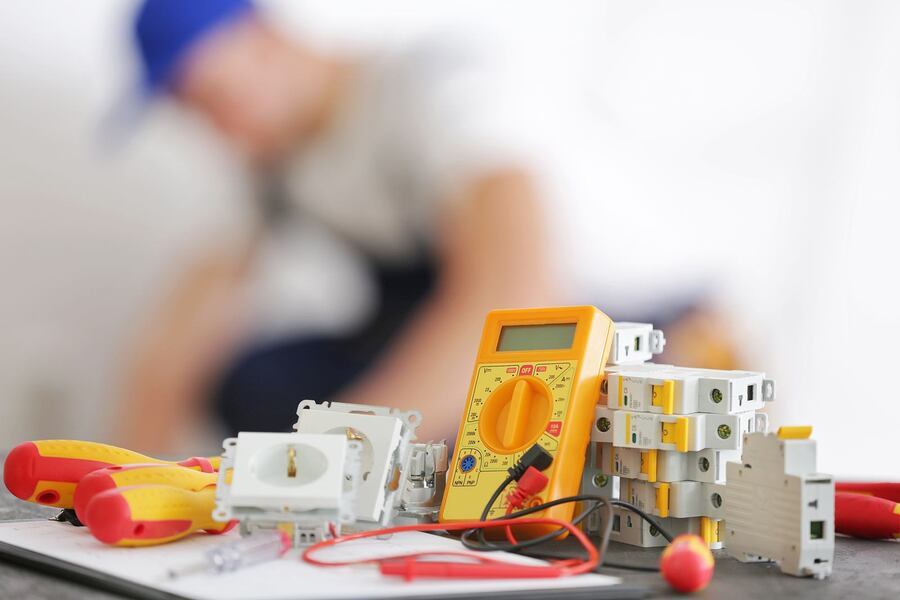Local Electricians in Orange County
Call this Monday to Get $35 OFFWe’re Here to Help
SCHEDULE ONLINE!Call Us!
845-230-0808Local Electricians in Orange County
Call this Monday to Get $35 OFFWe’re Here to Help
SCHEDULE ONLINE!Call Us!
845-230-0808
A circuit breaker is a resettable mechanical switch that automatically cuts off the electrical current during overload situations or fault conditions. The primary function of a circuit breaker is to provide protection against electrical hazards. It’s important to ensure this electrical safety device is working properly to protect circuits from fault current. Ideally, you should test your circuit breakers at least once every year to ensure you’re protected in the event of a voltage spike or short circuit.
As we’ve already highlighted, a circuit breaker cuts power when current levels exceed safe amounts. Like other components of your electrical system, these safety devices can fail due to overuse and age. A circuit breaker that doesn’t trip can lead to safety hazards, including electrical fires and equipment damage. Therefore, testing your circuit breakers regularly is an essential part of maintaining electrical safety.
You don’t have to call an electrician to help you test a circuit breaker. This is a fairly simple task you can do on your own using a digital multimeter, which is a device that measures voltage, current, and resistance. Below, we outline the steps to follow to test a circuit breaker using a digital multimeter. If you encounter any challenges, get in touch with a local electrical repair service for help.
As a safety precaution, turn off the power to the circuit and wear safety gloves. Your safety should always be a priority when dealing with electrical components.
Use a screwdriver to loosen the bolts that hold the electrical panel cover in place. You may need an extra set of hands to help you hold the cover steady while you loosen the bolts. Be careful not to drop the cover or touch any parts inside the panel.
Move the digital multimeter dial to AC voltage. For a standard residential circuit, choose a voltage range higher than 120 volts—this is the standard household voltage in the U.S.
Place one probe of the multimeter on the screw terminal of the circuit breaker and the other probe on the ground screw. A functional circuit breaker should read close to 120 volts when it is on. If the reading is significantly below this value, it means the circuit breaker is faulty. Double-check the results to be sure about the readings. Get in touch with a professional electrician for repairs. Do not attempt to fix the breaker yourself.
If the circuit breaker is in good working order, flip the switch to the “on” position and turn on the power.
Remember, the licensed electricians at Mr. Electric are here to help if you encounter any difficulties or if you find that the breaker is faulty. Our team is committed to helping you keep your electrical system in good shape and maintain optimal safety.
Not valid with any other offers.Limit one coupon per customer.
PrintNot valid with any other offers.Limit one coupon per customer.
PrintNot valid with any other offers.Limit one coupon per customer.
PrintNot valid with any other offers.Limit one coupon per customer.
Print